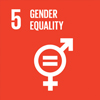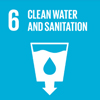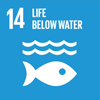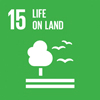Circular Talk Promotes Awareness to the Young Generation to Implement Circular Economy
- Details
- Written by Shofi
- Category: News
- Hits: 203
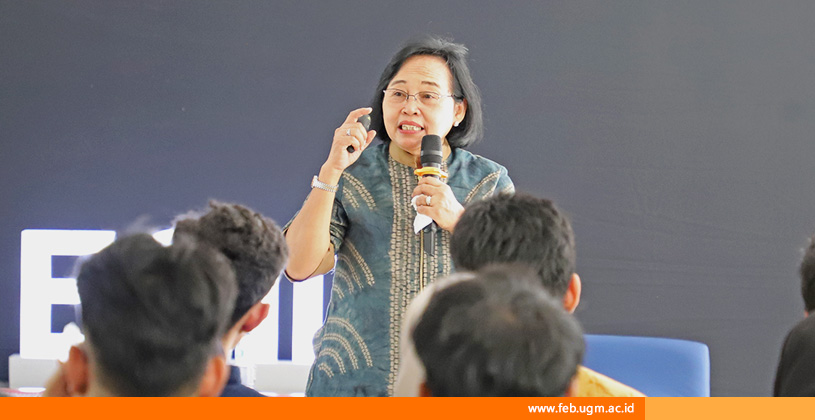
The Department of Management, Faculty of Economics and Business, Universitas Gadjah Mada (FEB UGM), through the Supply Chain and Circular Economy (SCCE) Study Division, in collaboration with Ekonomi Sirkular ID, held an event titled "Circular Talk". The event, with the theme "Eco-Friendly Dye Innovation in the Textile and Fashion Industry", aimed to raise awareness and understanding among students on the implementation of circular economy principles, particularly in industries with significant environmental impact.
Luluk Lusiantoro, M.Sc., Ph.D., Coordinator of the Supply Chain Circular Economy Study Division at FEB UGM, said the event aimed to educate and raise student awareness on circular economy practices. In addition, this activity introduced Ekonomi Sirkular ID (ekonomisirkular.id), the first platform in Indonesia focused on education about circular economy practices. The platform also provides tools to assess how well individuals and businesses have adopted circular economy principles.
"We hope other faculties and universities in Indonesia can replicate this event to promote and spread ideas about circular economy and sustainable economy," he explained.
The Circular Talk featured Prof. Edia Rahayuningsih, M.S., IPU, Head of the Indonesia Natural Dye Institute (INDI) UGM, as the main speaker. She shared her insights and experiences applying circular economy principles in the textile industry through natural dyes.
Edia emphasized the importance of natural dye innovations, stating that their development offers an eco-friendly alternative and reduces reliance on synthetic dyes, most of which are still imported. “Indonesia still imports synthetic dyes worth IDR 5 trillion, even though such dyes have been banned for their harmful effects,” said the UGM Chemical Engineering lecturer.
She also highlighted that around 90% of small-scale artisans still use synthetic dyes, even though Indonesia has great potential in utilizing local biodiversity for natural dye raw materials. Natural dyes not only support environmental sustainability but can potentially revive Indonesia's natural dye industry. INDI UGM supports technological innovations and ensures supply chains from upstream to downstream, especially for natural dyes in the textile and food coloring industries.
In the interactive discussion, Edia encouraged the younger generation to be more mindful when choosing textile products. She also urged students to contribute simple but impactful solutions, such as recycling clothes and opting for natural dyes.
One hundred seventeen students from various faculties attended the event. Amrique Marwatul Wafiroh, a student from the Faculty of Geography, shared that the seminar provided new insights into the use of waste in the textile industry and the importance of a circular economy. She highlighted the exciting discussion on mangrove waste, where the leaves and many other parts could be used as natural dyes.
Meanwhile, Nashifah Nailatusy Syarafah, a student from the Faculty of Geography, hoped that through this event, the younger generation could implement circular and sustainable economic practices. “The session was exciting and interactive. I am glad to have participated in this event. I hope that the material shared by the speaker can be applied by society in the future,” she said.
Reportage: Shofi Hawa Anjani
Editor: Kurnia Ekaptiningrum
Sustainable Development Goals

